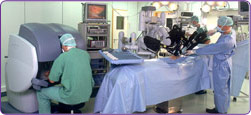Acne is a common skin condition that predominantly affects young people during puberty. Overproduction of sebum and clogged pores cause it. The consequences can be physical, postage, and psychological, with a pronounced negative impact on quality of life.
Isotretinoin: General information
Accutane, or Isotretinoin, is a powerful drug originally developed to treat severe acne. It is a synthetic analog of vitamin A, known for its retinoid properties, which directly affect skin cell growth and development.
Systemic retinoids and Isotretinoin are the most effective treatment for moderate to severe acne. Isotretinoin is indicated for patients with nodular cystic acne and frequently recurrent inflammatory rashes in whom antibiotics have proven ineffective and for patients with a tendency for acne to resolve as scarring.
In recent years, the indications for prescribing Isotretinoin have expanded, including treating single but recurrent facial eruptions. They are very distressing to several patients. This is especially true for public figures such as artists, dancers, journalists, etc., who want a quick and lasting effect.
Effectiveness of Isotretinoin
The accutane drug has a significant effect on reducing the production of sebum, reduces inflammation, and has antibacterial properties. It improves skin condition, treats acne, and helps eliminate post-acne. However, you should note that the drug's effectiveness may vary depending on individual body characteristics, the severity of acne, and several other factors.
Side effects of Isotretinoin
The use of Accutane can cause several side effects that every patient should consider. These include dry skin and mucous membranes, eye irritation, the possibility of depression, and even liver dysfunction.
The most common side effects associated with isotretinoin therapy are cheilitis and dry skin. Some may include nighttime visual disturbances, conjunctivitis, photosensitivity, transient hair loss, arthralgia and myalgia, headache, and transient increase in liver transaminases, triglycerides, and cholesterol. However, the incidence of these phenomena is extremely low.
Isotretinoin may affect the central nervous system. Some potential side effects include headache and fatigue. You may have dry eyes or have trouble seeing in the dark. Some people have tinnitus or hearing loss. In some cases, hearing loss may become permanent. Isotretinoin can cause increased pressure in the brain, which is a life-threatening condition. Symptoms of increased brain pressure include:
- Severe headache.
- Blurred vision.
Because of teratogenic effects on the central nervous system and the cardiovascular system of the fetus, isotretinoin should not be taken during pregnancy. There is a perception that after a course of systemic retinoids, there is a high probability of the birth of a child with deformities, and pregnancy should not be planned until two years after the end of treatment.
But unlike other retinoids (etretinate and acitretin), isotretinoin has a half-life of 19 hours. Women who receive it should, therefore, only use contraception during and for one month after completion of treatment. To minimize the risk of this adverse event, all patients of childbearing age should be counseled on contraceptive methods before starting treatment.
Blood, Bone, and Muscle
Taking Isotretinoin may cause your red and white blood cells to shrink. Symptoms include feeling weak and having difficulty breathing. Isotretinoin can build up in the blood. You may develop problems with blood sugar and lipid levels. Because of the danger to pregnant women, you should not get blood tests while taking this medicine or for one month after you stop taking it.
Side effects of Isotretinoin may also include pain in the:
Conclusion
Accutane offers a powerful approach to treating acne, but it is also important to consider its side effects. This medication should be used under the strict supervision of a doctor and tailored to the individual patient.
![]() Powered by Encounter CSS ™ | Terms of Use
Powered by Encounter CSS ™ | Terms of Use
In This Section

da Vinci® Surgical System
da Vinci® overcomes limitations of both traditional and minimally invasive surgery.
[ learn more ]


